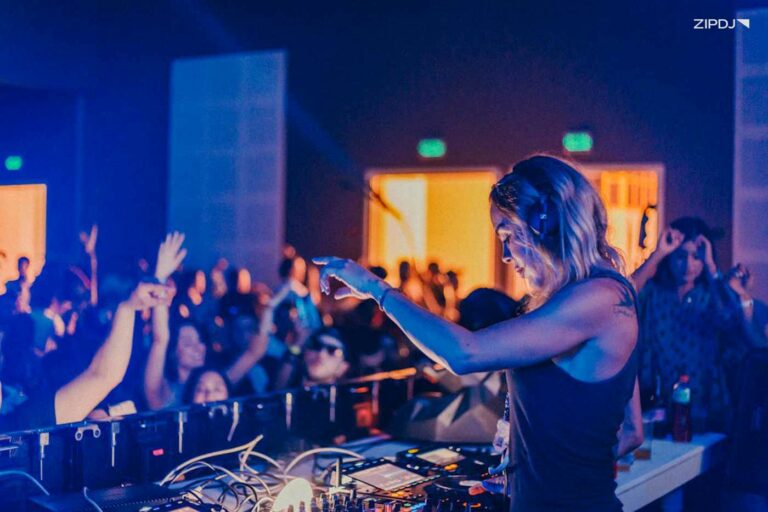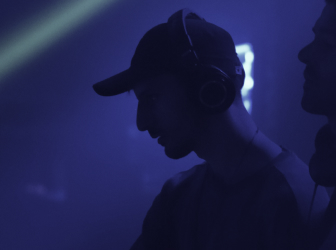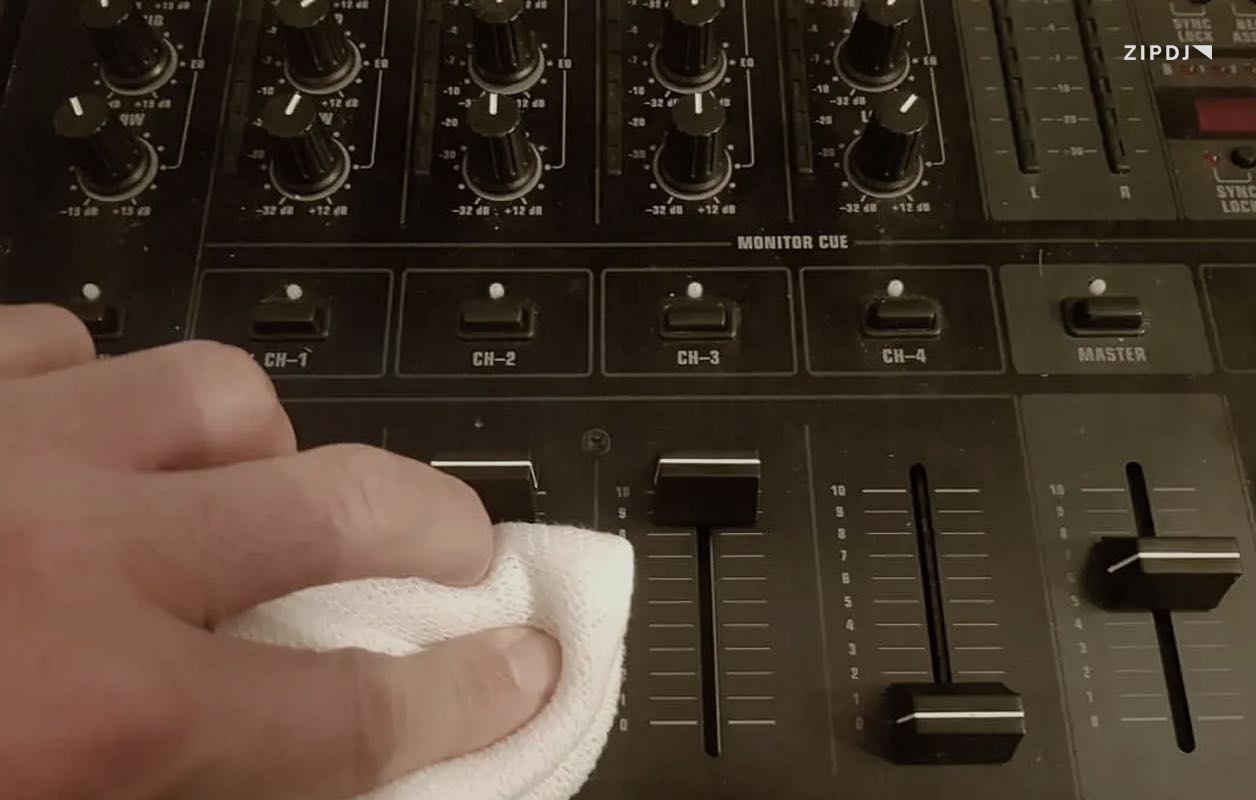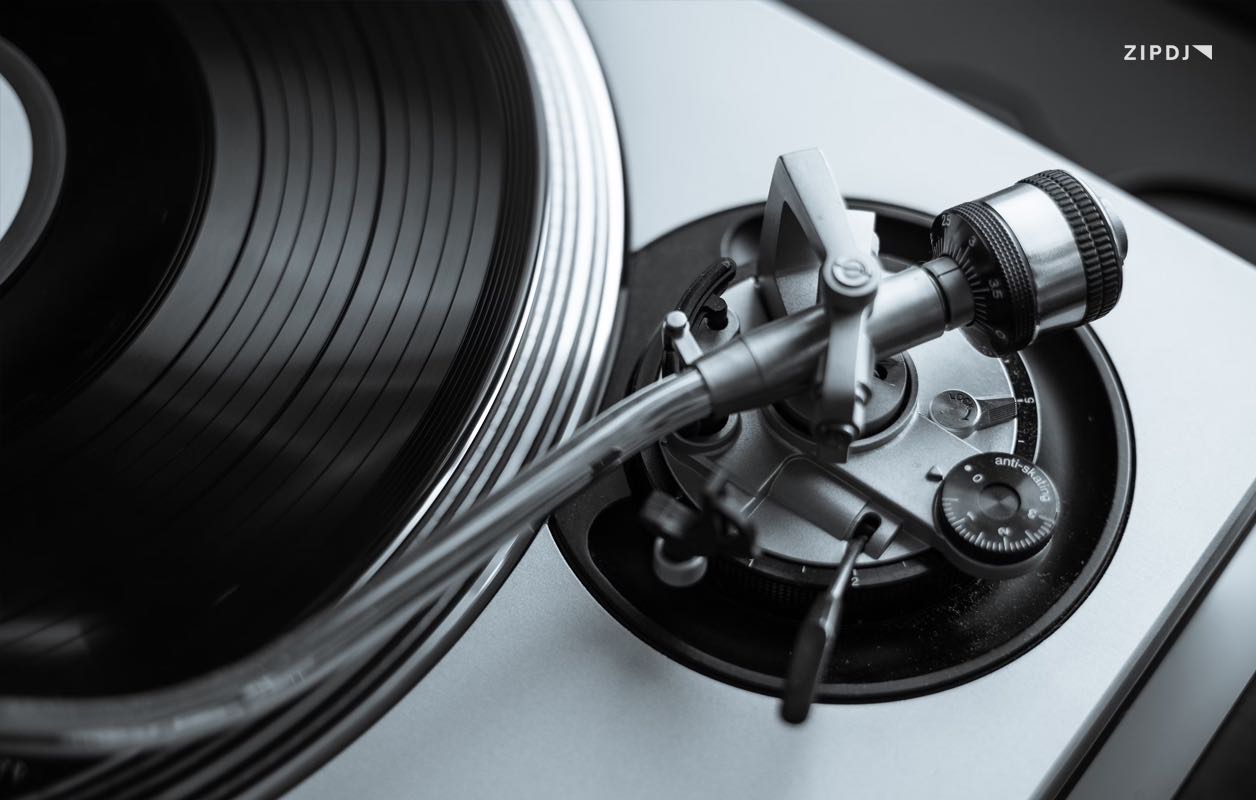Top 10 Most Common DJ Pain Points

The most common DJ pain points can prevent you from becoming the best DJ you can be and hold you back from achieving a successful DJing career.
Such obstacles include failing to prepare your sets and making unnecessary mistakes to poor communication skills with clients.
Continue reading for our overview of the most common DJing pitfalls and our solutions to prevent them from impacting your career.
Top 10 Most Common DJ Pain Points
There are many pain points for DJs that need to be overcome to reach their full potential and take their professional careers to the next level.
In this guide, we’ve covered everything from the best software to manage your time to resources you can use to keep up with the latest trends.
So, without further ado, here’s our guide to the ten most common DJ pain points:
10. Failing To Prepare
Whatever creative endeavor you’re participating in, preparation is the key to success, and this principle is as true for DJs as it is for anyone else.
Turning up at a gig without having an idea of what records you’re going to play is a recipe for stress and anxiety, particularly if you’re feeling run down.
DJs need to have a clear grasp not only of the tunes they wish to play but also of the best parts of the track for mixing in and out of one another.
Understanding where these cue points are can transform an awkward, poorly-received set into a crowd-pleasing smash that earns you additional bookings.
When playing at professional events and venues, preparation allows you to focus on delivering a great mix that both the customers and event organizers enjoy.
Likewise, when reaching out to potential clients and working on DJ marketing, preparing your upcoming social media posts is also essential.
You can use software to organize the business side of being a working DJ, allowing you to focus on honing your DJing skills and discovering new music to play.
9. Lacking Inspiration
Keeping the content of your DJ sets fresh and invigorating can be challenging, with an abundance of new music released every day that can become overwhelming.
A lack of inspiration is closely linked to creative blocks and is one of the biggest challenges a DJ can have to overcome.
Just as music producers have to take the time to develop new ideas, so too do DJs need to integrate sources of inspiration into their daily lives.
Fortunately, there are plenty of methods you can fall back on to bust through a creative block and maintain a positive attitude about your DJing.
Spending time listening to DJ sets from your favorite DJs will expose you to new tracks and mixing techniques you can integrate into your mixes.
You can also join a Facebook group dedicated to your particular niche, where engaging in regular conversations will throw up new ideas.
8. Dealing With Customers
DJs spend a lot of their time working in an environment surrounded by people who are dancing and drinking plenty of alcohol, which can be stressful to deal with.
While the customers may be having lots of fun, they can also be a constant source of interruptions, making requests and trying to talk to you while you’re busy mixing.
Learning how to manage these interruptions and deal appropriately with drunken behavior is one of the most common pain points DJs face.
An unruly or disruptive customer has the potential to ruin your DJ set, which can be potentially disastrous, especially if DJing is your full-time job.
To avoid this, you should work to set clear boundaries, both figuratively and literally, to keep such customers at a distance and allow you to perform.
Make sure there’s a clear space between your DJ controllers and other gear and the audience so they can’t accidentally spill drinks on your equipment.
You can handle the issue of music requests by simply having a “no requests” policy, or if you’re working as a wedding DJ, ensuring all requests are submitted before the set.
7. Using The Wrong Equipment
Mastering a broad selection of technical skills counts for little if you’re not using the best equipment needed for the task.
Another common pitfall DJs face is performing with faulty or subpar equipment and wondering why their sets aren’t blowing people away.
While it may be tempting to pick up cheaper DJ controllers and turntables, if you’re playing in clubs with different gear, you won’t be familiar with its tools.
Using cheap USB sticks is another issue faced by more inexperienced DJs, who only learn the error of their ways when they suddenly find their tunes aren’t loading.
DJing from a laptop using a USB power supply is another schoolboy error gigging DJs have faced, increasing the chances of their laptop crashing.
A failure to check DJ software and ensure it’s fully up-to-date can also create huge problems that can’t be resolved without interrupting the set.
To avoid these issues, don’t skimp on investing in the right equipment for your needs, and make sure you clean and maintain it before and after live gigs.
6. Mastering The Techniques
Nothing ruins a DJ set quite like shoddy technical skills, whether failing to beat-match correctly or choosing mismatched tracks to mix with.
Mixing tunes is an art form unto itself, and the best DJs in the world dedicate their time to honing the craft to the point where mixing is second nature.
While it can be tempting for beginner DJs to jump in at the deep end, they should spend time learning the basics before moving on to more advanced techniques.
There’s no point in learning how to scratch if you don’t develop an understanding of the principles of mixing and selecting tracks that are harmoniously matched.
Understanding how to effectively use your DJ controller’s EQ and other filters and effects is also necessary to deliver outstanding sets that get a crowd pumped up.
While some of these techniques can be self-taught, others may require signing up for online courses or tracking down tutorials on websites such as YouTube.
If you know other DJs who have more experience than you, you can reach out to them and see if they’re willing to share their knowledge in person.
5. Communicating With Clients
Each DJ has their own personality traits, and while some may be savvy with interpersonal communication, it’s often one of the main pain points for developing a career.
DJs can easily get overwhelmed with the process of selecting music, putting together sets, and honing their technical skills so that they forget to communicate with clients.
A passion for music and creativity is often associated with more introverted personalities who would rather practice DJing than spend time talking to local businesses.
Fortunately, communication skills are like any other and can be worked on and improved with the right mindset and resources.
It requires putting on your business head and working on a DJ press kit that sets you apart from the competition and drums up more work.
This can be accomplished by using time management tools to keep a list of current and potential customers to ensure your schedule is optimized.
If you’re working as a mobile or wedding DJ, communicating with a client is just as important since they’re looking for a particular sound when you perform.
When listening to a client, take notes if necessary to make sure you deliver the quality of service they’re looking for and resolve any issues as they arise.
4. Exploring Unfamiliar Genres
There are many successful DJs who specialize in a particular music genre, making a name for themselves in a particular field.
While there’s nothing wrong with focusing on a niche genre, it can lead to a feeling of stagnation and the sense that your skills aren’t progressing.
Exploring different genres is a constructive way to avoid the pitfall of playing samey and repetitive sets while also expanding your general music knowledge.
There are lots of genres that relate to one another; for example, house music DJs will often blend this style with techno as their set evolves.
Likewise, if you’re playing drum and bass, branching out into other genres, such as jungle, hardcore, and gabba, will open up new and fun mixing possibilities.
With the internet providing access to more music than anyone can possibly listen to, it’s important to understand where DJs get their music online and off.
The more you work on building an impressive archive of music, the more inspiration you’ll gain for exploring unique sounds and delivering killer DJ sets.
3. Marketing Your Brand
Having an aptitude for music and DJing is no guarantee you’ll be adept at marketing yourself to event organizers and promoters.
In fact, learning how to promote your music can be a full-time job in and of itself, with a wealth of options and avenues for you to explore.
Marketing your services is an ongoing process that can be time-consuming and should be tailored toward your client base.
If you don’t have a social media presence, this is something you should address as soon as possible since this is the optimal medium for promoting upcoming gigs.
Spend time developing a strong visual brand and logo, then use this across your various online platforms to help strengthen your identity.
The next step is to set up a dedicated website that you can use to showcase your mixes, share photos of previous live sets, and connect with influencers.
There are also different types of artist services available for promotional purposes, and if you’re a DJ producer, these are great ways to share original music.
2. Transforming Feedback Into Action
When receiving feedback, it can be easy to let ego get in the way and become defensive, particularly if the feedback is less than glowing.
Many of the techniques for transforming customer feedback into action used in the corporate world are just as relevant for working DJs.
One way to do this is to engage in conversation with the person delivering the feedback to dive into the details and develop coherent solutions.
If they’re a more experienced DJ than you are and their feedback relates to technical skills, find out what you need to learn to overcome the issue.
Likewise, any constructive criticism you get from booking agents or venue managers should be taken seriously and not dismissed out of hand.
You should aim to directly solicit responses from those who have the skills and experience to help you develop your career and broaden your horizons.
Of course, you’re always free to reject feedback if you don’t deem it to be relevant, but always try to remain open to the possibility you can learn something new.
1. Keeping On Top Of Trends
The best DJs understand the importance of keeping on top of the latest trends so the sets they play stand out from the crowd with new and exciting music.
This means investigating how to get unreleased music and access new releases the moment they drop so you can use them in a timely manner.
You can do this by signing up for mailing lists from your favorite artists and record labels to get notifications whenever a new track hits the market.
There are also great DJ pools that offer exclusive tracks and remixes, which you can download for a nominal monthly subscription fee.
Following music industry news and reviews is another way to keep abreast of hot new producers and emerging trends that DJs need to know.
There are also plenty of forums and websites, such as Reddit, where other DJs keep one another in the loop on new material from a wide range of genres.
Summary
That’s a wrap on this article exploring the common pain points DJs face and how you can overcome them and achieve your goals.
Some of the biggest challenges faced by DJs are universal, from struggling to manage social media accounts to finding the time to explore new styles of music.
We hope this guide offers plenty of beneficial advice you can use to find the best solution and push your DJing career in the right direction.
Discover an exciting world of new music with a ZIPDJ pool subscription and access the latest hit releases and remixes.
Not a member ?
Join Today for Unlimited Music Downloads. Visit zipdj.com for more information.



